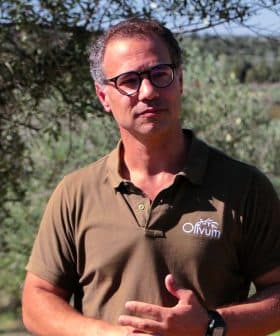Some Effects of Climate Change Are Already Irreversible, U.N. Warns
The latest IPCC report warns that many impacts of climate change are now irreversible, putting over 3.1 billion people at high risk, with severe ramifications for low-lying coastal areas and infrastructure if global temperatures rise above 1.5 ºC. Efforts to mitigate climate change include shifting to sustainable food production systems, such as restoring traditional olive groves that can sequester up to 5.5 kilograms of carbon dioxide per kilogram of oil produced.
Many of the impacts of climate change are now “irreversible,” according to the latest report from the Intergovernmental Panel on Climate Change (IPCC)
The United Nations panel warned that 40 percent of the global population – more than 3.1 billion people – is at high risk due to the effects of climate change.
This is really a key moment. Our report points out very clearly, this is the decade of action if we are going to turn things around.
The report added that climate change is pushing humans beyond their ability to adapt despite concerted efforts to mitigate its effects.
“This report is a dire warning about the consequences of inaction,” said Hoesung Lee, chair of the IPCC. “It shows that climate change is a grave and mounting threat to our wellbeing and a healthy planet. Our actions today will shape how people adapt, and nature responds to increasing climate risks.”
See Also:Shifting to Plant-Based Diets Can Cut Global Emissions and Capture CO2, Study FindsAccording to the IPCC report, the world faces multiple irreversible climate hazards for the next two decades if average global temperatures rise 1.5 °C above the pre-industrial level.
Even briefly, exceeding this warming level is likely to have severe ramifications for low-lying coastal areas and infrastructure.
Climate change has already been attributed to the recurrent droughts, wildfires and floods impacting different regions around the world.
These events have been pushing plants and animals to the edge of their tolerance levels and causing mass deaths of corals and some tree species.
Since these extreme weather changes are occurring simultaneously, they have spill-over effects that are hard to manage.
Currently, extreme weather changes have exposed millions of people to severe food and water insecurity in Asia, Africa and parts of Central and South America.
According to a study conducted by the National Aeronautics and Space Administration (NASA) in 2021, climate change is likely to reduce the production of wheat and corn by about 20 percent by the end of the decade.
See Also:Current Climate Pledges Will Not Avoid Irredeemable Consequences of Global Warming“Our report clearly indicates that places, where people live and work, may cease to exist, that ecosystems and species that we’ve all grown up with and that are central to our cultures and inform our languages may disappear,” said Debra Roberts, co-chair of the IPCC.
However, there is hope that things might not get out of hand if temperature increases are kept below 1.5 ºC.
“So this is really a key moment,” Roberts said. “Our report points out very clearly, this is the decade of action if we are going to turn things around.”
While burning fossil fuels account for 70 percent of greenhouse gases released into the atmosphere. Agriculture is also responsible for 14 percent of greenhouse gas emissions.
Modern farming methods are also blamed for deforestation, loss of biodiversity, and soil erosion.
As a result, supranational entities such as the European Union are trying to shift to sustainable food production systems and restore the continent’s natural environment.
Planting and restoring traditional olive groves are among these efforts. A recent study from the University of Jaén found that traditional groves sequester up to 5.5 kilograms of carbon dioxide per kilogram of oil produced.
Previously, the International Olive Council found that for each liter of olive oil (the density of which is slightly less than a kilogram) produced, the associated olive trees remove 10 kilograms of carbon dioxide from the atmosphere.









